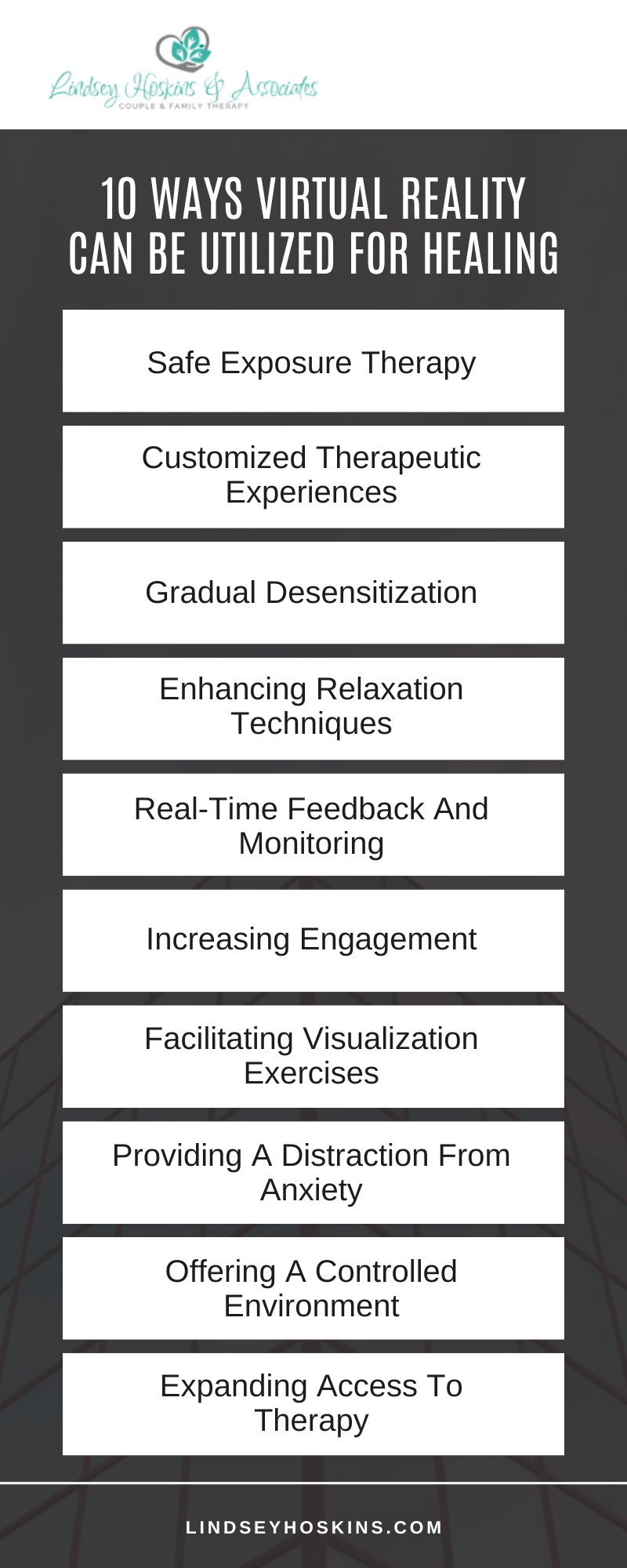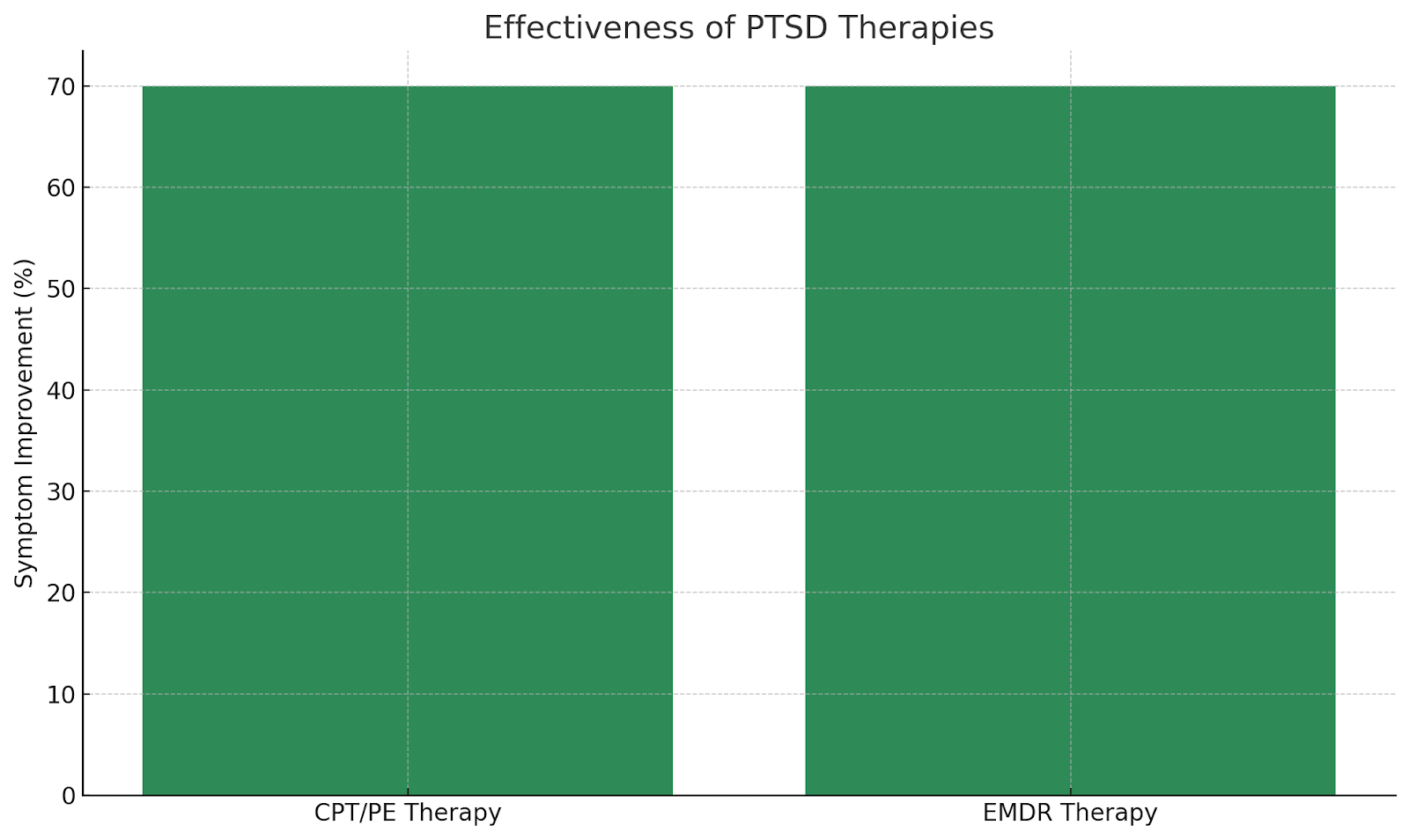Trauma Therapist Bethesda, MD

For survivors of trauma, their mental health suffers long after the initial traumatic incident. Trauma weighs down on us long after the worst is over, and it can negatively affect how we live out the rest of our lives. Fortunately, with proper management and care, you can learn to healthily cope and manage your trauma and post-traumatic stress.
If you’re struggling with the aftermath of trauma, you have to get help – but you need to recognize the fact that your trauma is affecting you in order to recognize that you need help in the first place. Reach out to us to learn more about how Lindsey Hoskins & Associates can help you manage your mental health.
Negative Effects Of Post-Traumatic Stress
Your initial trauma is just the tip of the iceberg. Whether you experienced violence, sexual abuse, or a major accident, the sources of trauma are as varied as their aftereffects. Many survivors of trauma may experience insomnia and anxiety related to their triggers, and unfortunately, many survivors may turn to alcohol or drugs to numb the pain.
Of course, the impact of trauma isn’t just limited to anxiety and difficulties sleeping. Trauma can manifest itself in many ways. Some people who have experienced trauma have a deep aversion to certain activities or triggers they may relate to their traumatic experience, and others feel physical pain or discomfort well after the fact. Muscle pain, joint pain, headaches, and of course depression and panic disorders can linger long after your initial trauma.
Your Trauma Can Interfere With Your Life
Trauma and post-traumatic stress can impact how you live your life. How many times have you missed out on important occasions or even just everyday socializing because of your stress and anxiety?
You may be unable to attend important social functions just because you’re experiencing a particularly bad bout of anxiety or depression, and your interpersonal relationships may suffer as a result. Trauma can haunt you for the rest of your life, and that’s all the more reason to get in touch with a trauma therapist in Bethesda, MD.
Finding Healing Through Therapy
If you are struggling with trauma, our Bethesda, MD trauma therapist is here to help you. We know how difficult and restrictive living with trauma can be. It is an experience that can cause a great deal of pain and strife for anybody, no matter what they have gone through. Our team can help you work through this trauma in pursuit of a better, freer life.
Our therapists are available to help you with the pain that you are feeling. We strive to treat all parents with both the serious attention they deserve and the kindness and light heart that they need to heal. With evening and weekend appointments available, we will work with your busy schedule to help you receive the care that you need. Contact Lindsey Hoskins & Associates today to schedule your free telephone consultation and find out how our team can help you with your trauma.
Understanding Trauma
Our Bethesda trauma therapist is here to listen to you and understand the pain that you are feeling and the struggles that you are going through. We do not attempt to tell you what your trauma is or how you may respond to trauma, but we listen to your story and help you understand how trauma may be affecting you and how we can work through it together.
Trauma can lead to physical, mental, spiritual, and psychological pain for victims. It can lead to fear and a sense of helplessness. These reactions are normal responses to trauma, and our team can help you understand them and work through them together. There are many specific responses to trauma and symptoms of trauma that people may experience without being aware of their source. Depression, panic attacks, anxiety, shame, guilt, insomnia, anger, high blood pressure, mood swings, and more can all be caused by trauma. We know that trauma and its responses manifest differently for every person. We will listen to your experience and help you understand your specific responses to trauma and how we can address them.
The Benefits Of Therapy
Just as trauma manifests differently for everybody, the benefits of therapy are different for each patient. Our Maryland trauma therapist will help you understand your needs and goals for therapy and work towards them at a pace that is comfortable and beneficial for you. Therapy can help victims of trauma increase their support network, understand themselves better, understand their emotions and how to handle them, understand coping strategies, identify underlying causes of symptoms, manage symptoms, and create lifestyle changes. Whether you are looking for short-term or long-term assistance with your trauma, our team is here to help you.
Get In Touch With Lindsey Hoskins & Associates Today
When you experience trauma, you risk carrying it with you for the rest of your life. Fortunately, with the help of a qualified trauma therapist, you can learn to effectively manage the impact of trauma, and you can learn to cope with your trauma in a healthy and safe manner. It’s never too late or too early to seek out a trauma therapist who can make a difference. Get in touch with Lindsey Hoskins & Associates Today, and see how a trauma therapist in Bethesda, MD can help.
10 Ways Virtual Reality Can Be Utilized For Healing
Virtual Reality (VR) is becoming an increasingly popular tool in trauma therapy as a Bethesda, MD trauma therapist can share. Its unique ability to create immersive, controlled environments makes it a valuable resource for therapists working with clients who have experienced trauma. At Lindsey Hoskins & Associates, we have seen how technology, like VR, is transforming therapy and providing new pathways to healing. Here are several ways a therapist might utilize virtual reality in their practice.
1. Safe Exposure Therapy
One of the primary uses of VR in trauma therapy is for exposure therapy. VR allows therapists to recreate environments or scenarios that are specific to a client’s trauma. This can be particularly useful for clients who have experienced PTSD. By exposing clients to their trauma triggers in a controlled and safe virtual environment, therapists can help them confront and process their fears without real-world risks. As a specially-trained clinician from our company can explain, using multiple types of therapies can help patients overcome their traumas especially when done slowly, carefully, and in a controlled and safe environment.
2. Customized Therapeutic Experiences
VR provides the ability to tailor therapeutic experiences to the individual needs of clients. Bethesda trauma therapists can customize VR scenarios to match the specific details of a client’s traumatic experience. This customization helps make the therapy more effective, as clients can work through their trauma in a highly relevant context.
3. Gradual Desensitization
Gradual desensitization is another key application of VR in trauma therapy. Therapists can slowly introduce clients to their trauma triggers, starting with less intense scenarios and gradually increasing the level of exposure. This method helps clients build tolerance and reduce anxiety associated with their trauma over time.
4. Enhancing Relaxation Techniques
VR is also used to enhance relaxation techniques in trauma therapy. Therapists can create virtual environments that promote relaxation, such as peaceful nature scenes or calming landscapes. These environments can help clients practice mindfulness, deep breathing, and other relaxation strategies in a setting that feels real and immersive. As our clinically trained therapists can explain, there are several relaxation techniques that can be used for patients.
5. Real-Time Feedback And Monitoring
VR technology allows therapists to provide real-time feedback and monitor clients’ responses during therapy sessions. This immediate feedback helps therapists adjust the therapy in real-time to better suit the client’s needs. Monitoring physiological responses such as heart rate can also provide valuable insights into how clients are reacting to the therapy.
6. Increasing Engagement
VR can make therapy more engaging for clients. Traditional therapy methods may not always capture a client’s full attention or interest, but VR’s immersive nature can help clients feel more involved in their therapy sessions. Increased engagement can lead to more effective therapy outcomes.
7. Facilitating Visualization Exercises
Visualization is a common technique in trauma therapy, and VR can enhance these exercises. Therapists can use VR to help clients visualize positive scenarios or practice coping strategies in a virtual environment. This can make visualization exercises more vivid and impactful.
8. Providing A Distraction From Anxiety
For some clients, VR can serve as a helpful distraction from anxiety and stress. Engaging with a virtual environment can shift their focus away from their worries and provide a mental break. This can be particularly useful during difficult therapy sessions when a client needs a moment to regroup.
9. Offering A Controlled Environment
One of the significant advantages of VR is the ability to control the environment. Therapists can manipulate various aspects of the virtual setting to create the optimal therapeutic conditions. This level of control is not possible in real-world settings and can greatly benefit the therapy process. This can include the actual setting a patient sees to the sounds they experience.
10. Expanding Access To Therapy
VR technology can also expand access to therapy for clients who may not be able to attend in-person sessions. Therapists can conduct VR therapy sessions remotely, providing support to clients regardless of their location. This can be particularly beneficial for clients with mobility issues or those living in remote areas.
At Lindsey Hoskins & Associates, we understand the importance of innovative approaches in therapy and legal practices. If you or a loved one has experienced trauma and are seeking support, consider reaching out to a Bethesda trauma therapist to see what treatment options are available. Contact us today to learn more about how we can assist you in finding the right resources for your needs.
Bethesda Trauma Infographic
Bethesda Trauma Therapist Statistics
Trauma therapy plays a crucial role in addressing the psychological aftermath of traumatic events, offering individuals pathways to recovery and improved mental health.
Prevalence Of Trauma And PTSD
Trauma exposure is widespread, with approximately 70% of adults worldwide reporting at least one traumatic event in their lifetime. Among those exposed, the lifetime prevalence of post-traumatic stress disorder (PTSD) is about 3.9%, increasing to 5.6% among individuals who have experienced trauma. In the United States, the lifetime prevalence of PTSD is estimated at 6.8%, with women (9.7%) more than twice as likely as men (3.6%) to develop the disorder.
Effectiveness Of Trauma Therapies
Evidence-based psychotherapies are the cornerstone of PTSD treatment. Cognitive Processing Therapy (CPT) and Prolonged Exposure (PE) therapy are among the most effective, with studies indicating that up to 70% of veterans show symptom improvements with these therapies. Eye Movement Desensitization and Reprocessing (EMDR) therapy has also demonstrated efficacy, with systematic reviews finding it as effective as trauma-focused cognitive behavioral therapies in reducing PTSD symptoms.
Trauma Therapist FAQ
Trauma therapy can be a transformative experience for those looking to heal from difficult life events. Trauma therapists use various approaches to help individuals recover and move forward. If you’re considering trauma therapy, it’s natural to have questions about what to expect. Here, we answer some of the most common questions people have about working with a trauma therapist Bethesda, MD.
What Types Of Therapy Are Used For Trauma?
There are several approaches that a trauma therapist may use to help you recover. Common methods include cognitive-behavioral therapy (CBT), which focuses on identifying and changing negative thought patterns, and eye movement desensitization and reprocessing (EMDR), a structured technique that helps people process traumatic memories. Other approaches may include mindfulness-based therapy and somatic therapies focusing on the connection between the mind and body. The specific approach your therapist uses will depend on your needs and the type of trauma you’ve experienced.
How Can Trauma Therapy Help Me Recover?
Trauma therapy is designed to provide a safe space to process difficult experiences, allowing you to regain control over your thoughts and emotions. It helps reduce the emotional and physical symptoms related to trauma, such as anxiety, depression, and hypervigilance. You can develop coping strategies to manage these symptoms and ultimately find relief. The goal is to help you feel better in the short term and equip you with tools that support long-term healing.
How Long Does Trauma Therapy Usually Last?
The length of trauma therapy varies from person to person and depends on the severity and nature of the trauma. Some individuals may see progress in a few months, while others may need therapy for a year or more. Therapy is a process and it’s important to move at your own pace. Your therapist will work with you to create a treatment plan that fits your needs, adjusting the timeline as necessary. Therapists often provide ongoing support to ensure you continue to make progress over time.
What Should I Expect In My First Session With A Trauma Therapist?
Your first session with a therapist is usually focused on getting to know you and your experiences. The therapist will ask about your background, any specific events that brought you to therapy and what you hope to achieve. It’s also a time for you to ask questions and discuss any concerns you might have. While the first session is often more about establishing a relationship with your therapist, it can also be an opportunity to begin outlining your therapy goals and how you would like to proceed.
Can I Get Trauma Therapy Online?
Yes, many trauma therapists offer online sessions. Online therapy has become increasingly popular, providing a convenient and accessible way for individuals to receive support without needing to attend in-person sessions. Whether you have a busy schedule or feel more comfortable meeting from home, virtual trauma therapy can be a flexible option. Online therapy still offers the same therapeutic benefits as in-person sessions and can be just as effective for processing trauma.
Conclusion
Trauma therapy can play an essential role in your healing journey, offering valuable tools and support as you work through challenging experiences. Whether you’re seeking in-person or online therapy, trauma therapists are equipped to help you find relief and recovery. Our friends at Lindsey Hoskins & Associates know how personalized care and a supportive environment can make all the difference. If you’re ready to explore how therapy can assist in your recovery, reach out today to learn more about the options available to you.
Bethesda Trauma Therapist Glossary
If you or someone you care about has experienced a traumatic event, working with our dedicated Bethesda, MD trauma therapist can provide a safe and supportive space for healing. At Lindsey Hoskins & Associates, we recognize the importance of mental health professionals in helping individuals process trauma and develop healthier patterns of thinking and behavior. Contact us today for your complimentary telephone consultation.
Post-Traumatic Stress Disorder
Post-traumatic stress disorder (PTSD) can develop after exposure to events involving serious harm or the threat of it. These experiences often include combat, abuse, accidents, or natural disasters. Symptoms can include unwanted memories, nightmares, difficulty sleeping, emotional numbness, and heightened alertness. This condition may interfere with daily life, relationships, and work. A trauma therapist can help clients recognize how their minds and bodies respond to trauma and guide them through evidence-based treatment approaches tailored to their individual needs.
Coping Strategies
Coping strategies are the tools and techniques individuals use to manage stress related to traumatic experiences. These may be unhealthy habits or healthy coping mechanisms. Healthy coping strategies may be developed over time with the help of a trauma therapist. Healthy coping strategies can include deep breathing exercises, structured routines, physical activity, journaling, or developing supportive relationships. Our goal when working with clients is to identify which techniques work best for their lifestyle and needs while reducing reliance on harmful patterns and beliefs such as avoidance or substance use. By building these habits in therapy, clients are better able to manage daily stressors and emotional responses when they arise.
Trauma Triggers
Trauma triggers are specific stimuli—such as sounds, smells, places, or even certain times of year—that bring up memories or emotions related to a past traumatic experience. Triggers can cause sudden changes in mood, behavior, or physical responses, even if the person isn’t fully aware of the connection. Our experienced Bethesda trauma therapist helps clients identify their unique triggers and develop strategies to respond to them safely and constructively. Awareness of these triggers is an important step in reducing their impact and gaining more control over how one responds in the moment.
Cognitive-Behavioral Therapy (CBT)
Cognitive-Behavioral Therapy (CBT) is one of the most widely used treatment methods for addressing trauma. This approach focuses on identifying and challenging unhelpful thoughts and beliefs that may have developed in response to trauma. In therapy, we work with clients to change these thought patterns and replace them with more accurate and helpful ways of thinking. CBT can also include gradual exposure to thoughts or situations that cause distress, which helps reduce their power over time. Many clients find this approach helpful in rebuilding their sense of safety and control.
Eye Movement Desensitization And Reprocessing (EMDR)
Eye Movement Desensitization and Reprocessing (EMDR) is another therapy method that has shown strong results for those working through traumatic experiences. This approach uses guided eye movements or other bilateral stimulation techniques to help the brain process traumatic memories differently. In sessions using EMDR, our Maryland trauma therapist supports clients as they revisit distressing memories in a controlled environment, allowing the emotional charge of those memories to diminish over time. This technique is especially helpful when talk therapy alone is not effective in reducing symptoms of trauma.
Enlist Experienced And Compassionate Support
If you’re looking for trauma support, working with a licensed trauma therapist can make a meaningful difference. We’re here to help you take that next step. Contact Lindsay Hoskins & Associates today to set up an appointment with our Bethesda trauma therapist. With dedicated service and evening and weekend appointments offered, we will work hard to meet your needs and your timeline.





